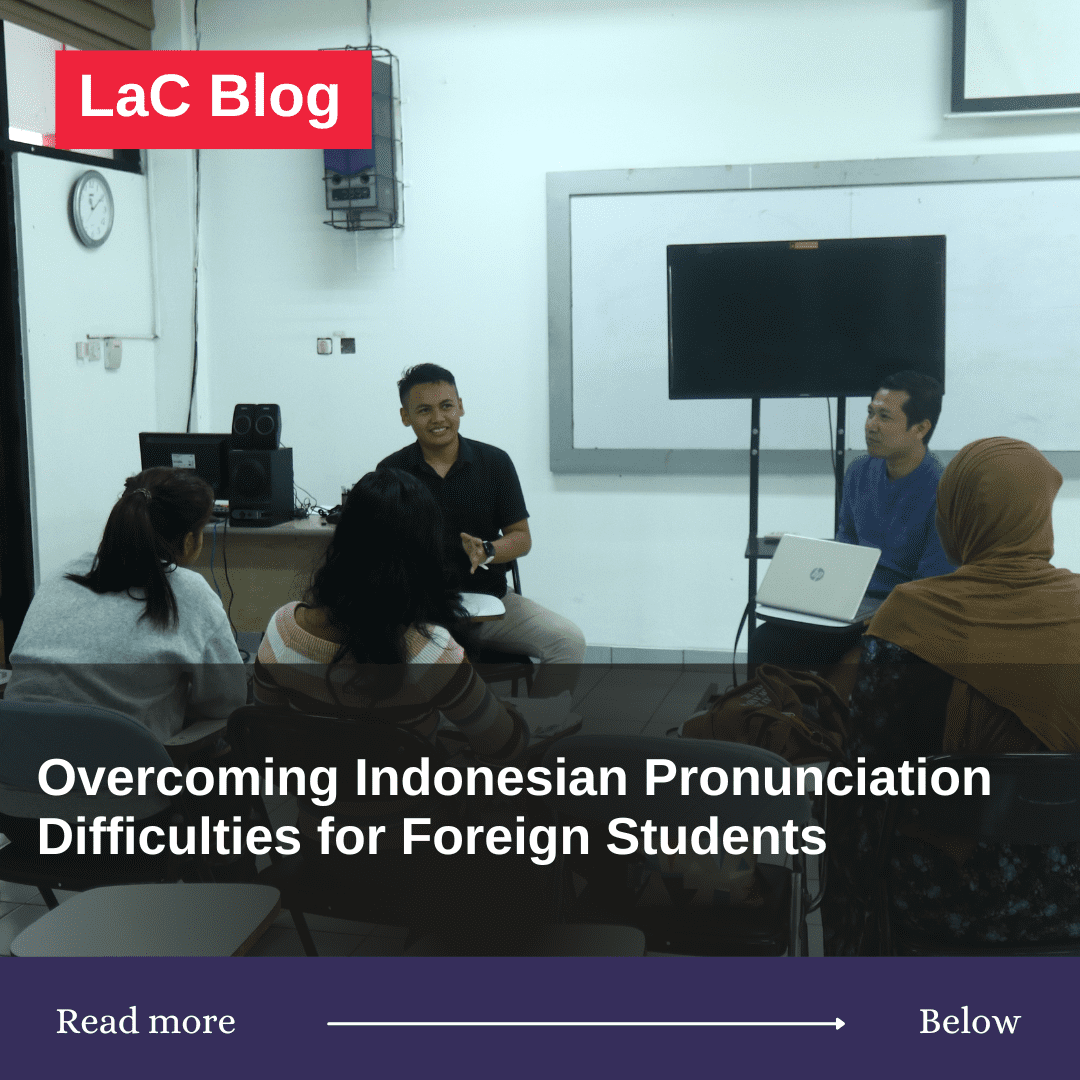
Overcoming Indonesian Pronunciation Difficulties for Foreign Students
The Indonesian language is one of the languages that has been gaining popularity among international students. With over 270 million people speakers, the language also serves as a key to understanding Indonesia’s rich and diverse cultures. Despite its relatively simple grammar compared to other languages, learning Indonesian still presents its own challenges, especially when it comes to pronunciation.
For foreign students, pronunciation often becomes the biggest challenge when communicating using Indonesian. Certain sounds, such as the trilled “r”, the relatively flat intonation, and the phonetic differences from their native languages, often make pronunciation sound less natural. However, this challenge is actually part of the learning process that can be overcome with the right approach.
This article is designed to help foreign students understand the main issues in Indonesian pronunciation and provide practical solutions that can be applied in daily life. With consistent practice and enjoyable learning methods, you can speak Indonesian more confidently and naturally. Let’s start your journey to mastering Indonesian pronunciation!

Why Does Indonesian Pronunciation Become a Challenge?
The Indonesian language has several pronunciation characteristics that may be difficult for foreign speakers to understand. Here are some of them:
1. Phonetic Differences
For speakers of languages like English, Chinese, or Japanese, certain letters in Indonesian, such as the “r” that must be rolled (trilled r) or vowels like “e” that have two different sounds (schwa and full), can often be confusing.
2. Different Intonation
The Indonesian language has a relatively flat intonation compared to tonal languages like Mandarin or more dynamic languages like English. This intonation may sound unfamiliar and difficult to follow.
3. Native Language Influence
Foreign learners of Indonesian often carry over pronunciation habits from their native language, resulting in pronunciation that sounds unnatural.
4. Consistent Syllables
Indonesian is a phonetic language, meaning that the words are pronounced exactly as they are written. However, this can pose a challenge as many learners are used to different pronunciation rules from their own languages.
Tips for Overcoming Indonesian Pronunciation Difficulties
1. Get to Know Basic Indonesian Sounds
Learn to recognize and pronounce the basic vowels and consonants in Indonesian. Here are some common vowel sounds:
• A: as in “mata” (“eye”)
• I: as in “sini” (“here”)
• U: as in “susu” (“milk”)
• E: as in “kelas” (“class”) (schwa) or “enak” (“delicious”) (full)
• O: as in “roda” (“wheel”)
Use learning audio materials from reliable sources, such as those from the Ministry of Education and Culture or language learning apps.
2. Practice Pronunciation using the Imitation Method
Listen to audio recordings of Indonesian native speakers and imitate their intonation, rhythm, and pronunciation. You can use platforms, such as:
• YouTube (search for Indonesian language learning channels)
• Podcast apps such as Spotify that offer learning materials.
3. Learn to Roll the “R” Sound
Many foreign students struggle with pronouncing the “r” in Indonesian. Here’s how you can practice it:
• Try placing the tip of your tongue near your upper teeth, and create vibrations by blowing air.
• Practice this sound with simple words, such as “roti” (“bread”) or “rumah” (“house”).
4. Use Indonesian Songs
Songs are a fun way to practice Indonesian pronunciation. Choose popular songs, such as:
• “Laskar Pelangi” – Nidji
• “Buka Semangat Baru” – Ello, Ipang, and others
• “Kangen” – Dewa 19
By singing along, you can learn rhythm and pronunciation at the same time.

5. Talk with Native Speakers
Make use of the opportunity to practice with your Indonesian friends. Apps like HelloTalk or Tandem can help you find language learning partners from Indonesia.
6. Record and Listen to Your Pronunciation
Use your phone to record your voice while speaking Indonesian, then compare it with the pronunciation of native speakers. This way, you can identify areas that need improvement.
7. Join an Indonesian Language Course (BIPA)
If you are serious about learning, join a BIPA (Indonesian for Foreign Speakers) program. This program not only teaches the language but also Indonesian culture. You can find it at university language centers, such as the Telkom University Language Center.
Common Mistakes to Avoid
1. Not Paying Attention to Intonation
Incorrect intonation can change the meaning of your sentence. For example:
• “Bisa?” (with a rising intonation, indicates a question)
• “Bisa.” (with a flat intonation, indicates a statement).
2. Not Practicing Daily
Consistent practice is the key to mastering Indonesian pronunciation. Dedicate at least 10-15 minutes every day to practice your pronunciation.
3. Not Using Available Resources
There are a lot of Indonesian language learning resources available online, such as videos, apps, or learning modules from universities. Don’t hesitate to use them.

Learning Indonesian for Foreign Speakers (BIPA) is Fun
Mastering Indonesian pronunciation is an important step to communicate fluently and gain a better understanding of Indonesian culture. Although it takes time and effort, this challenge is not impossible to overcome. With consistent practice, using various learning resources, and interacting directly with native speakers, you can achieve more natural and confident pronunciation.
If you want to learn Indonesian more systematically and receive direct help from professional instructors, join the BIPA (Indonesian for Foreign Speakers) program at the Telkom University Language Center. This course is specifically designed to help foreign students like you understand Indonesian, including overcoming pronunciation difficulties. With comprehensive materials, interactive learning methods, and a supportive learning environment, you will master Indonesian more quickly and effectively.
Don’t hesitate to start your journey of learning Indonesian with us! Visit the BIPA course page at the Telkom University Language Center to learn more and register. With BIPA, you will not only become fluent in Indonesian but also be ready to explore the beauty of Indonesian culture. Register now and experience an amazing learning journey!
Penulis: Pusat Bahasa Tel-U | Editor: Auliya Rahman P | Foto: Pusat Bahasa Tel-U
Eksplorasi konten lain dari Telkom University Language Center
Berlangganan untuk dapatkan pos terbaru lewat email.